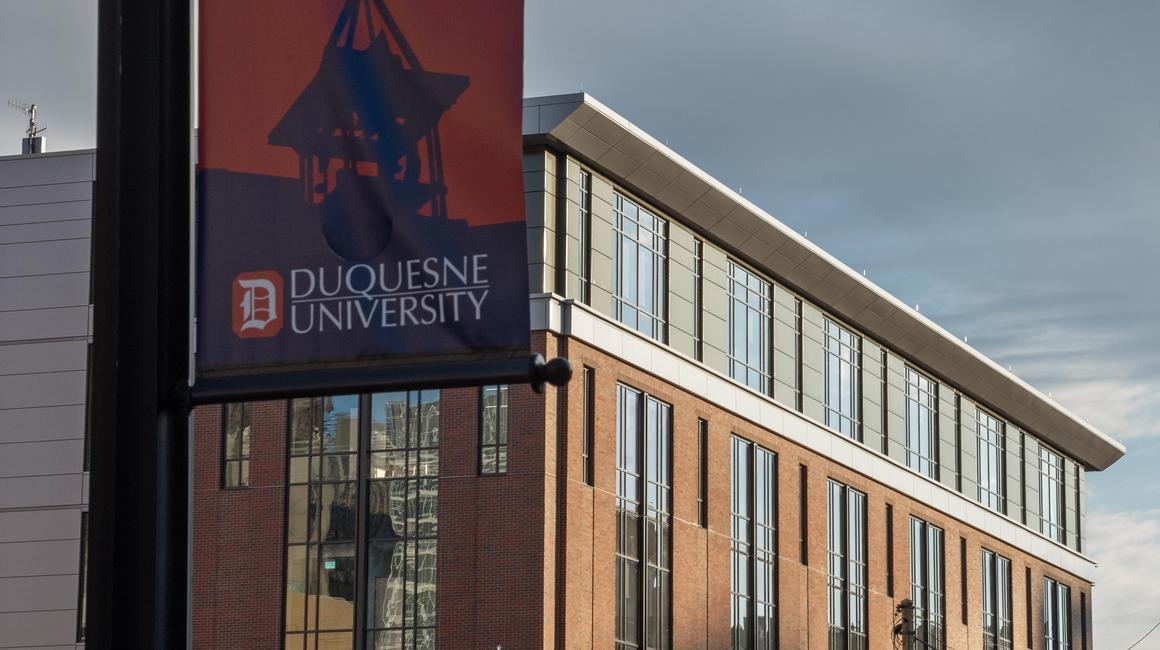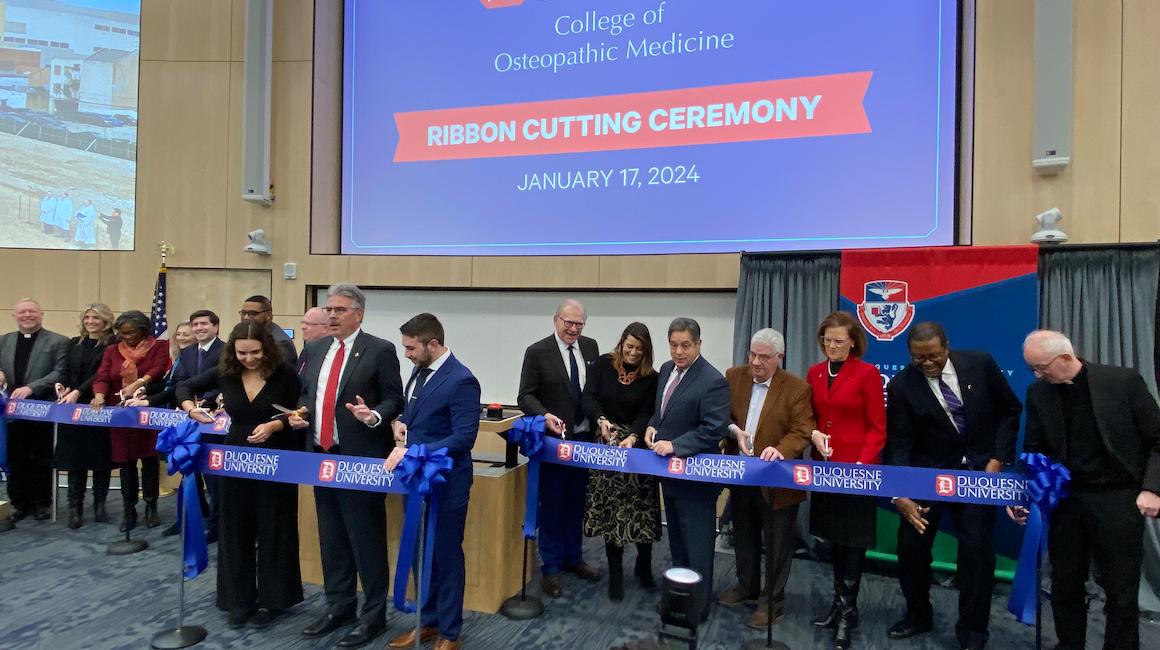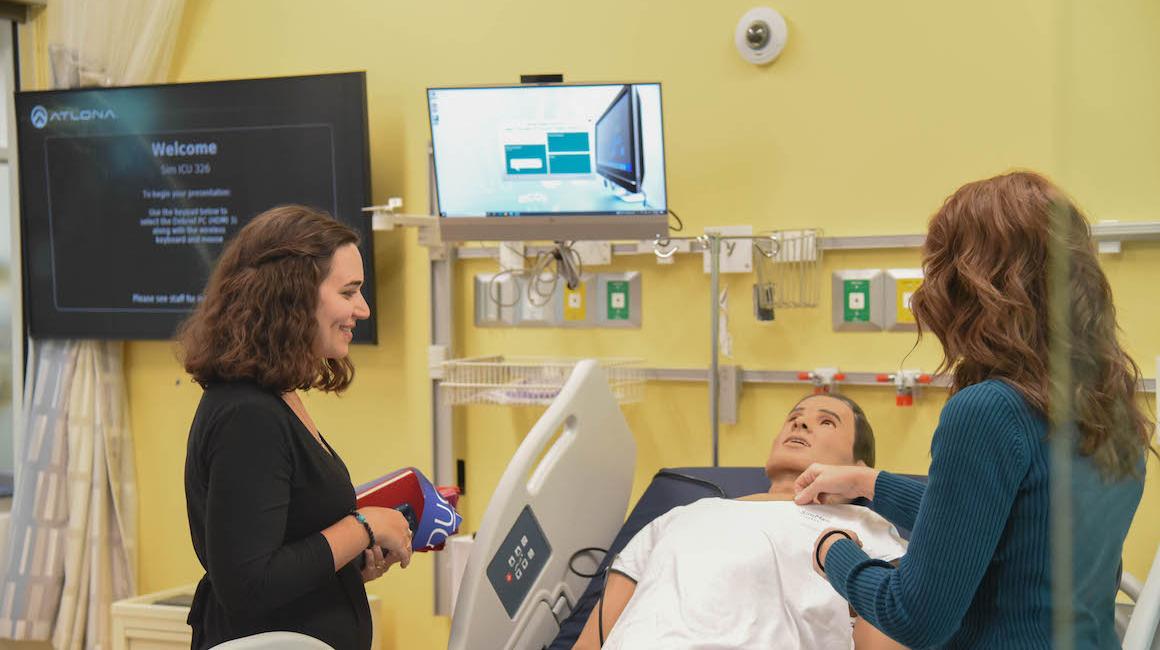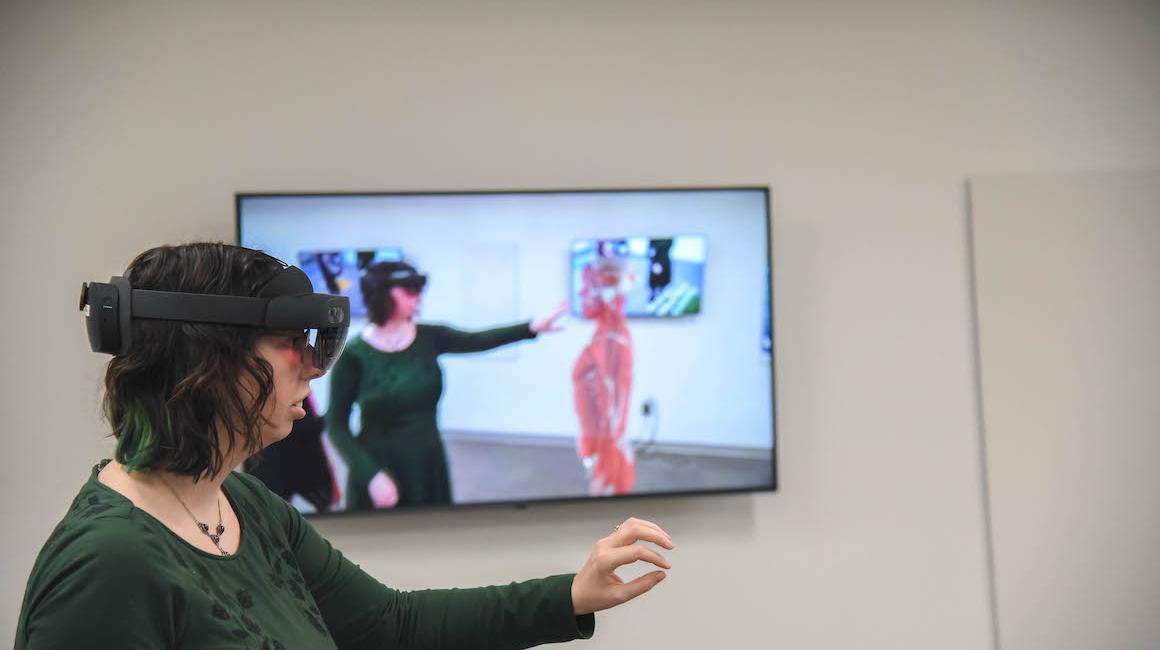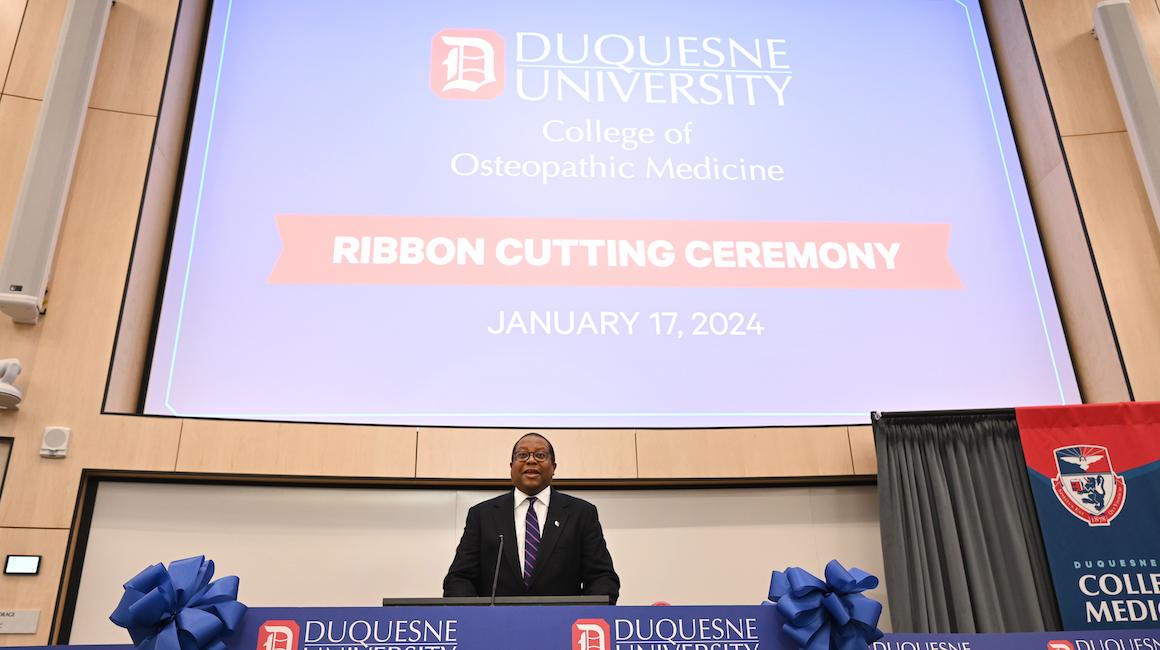Marking a milestone in the boldest initiative of its history, Duquesne University will open its new College of Osteopathic Medicine (COM) building with a special ceremony at 10:30 a.m. on Jan. 17. The medical college will welcome its inaugural class of students pursuing their doctor of osteopathic medicine (DO) degrees in July.
Prominent local officials, corporate and foundation leaders and community partners will attend the ribbon-cutting ceremony for the building, located on Forbes Avenue across from the UPMC Cooper Fieldhouse. They will join Duquesne University President Ken Gormley, who has spearheaded this initiative, the largest in Duquesne’s history, since the project was announced in 2019. The ceremony will also include two entering students: Rose Trimpey-Warhaftig, the first student accepted to the COM, and Jacob Dimenbort, currently a student in the college’s masters of biological sciences (MBS) program.
The ribbon cutting will occur at the conclusion of a procession by University leadership, deans of each of Duquesne’s nine schools, and faculty and student representatives for each school whose work or studies connect to health care. The procession will start at Old Main, the oldest building on Duquesne’s campus, and arrive at the new medical school to start the ribbon cutting ceremony.
The college arrives at a critical time as the nation faces a shortage of available doctors, especially in urban and rural areas.
In July, the college will enroll 85 students, with the plan to grow annual enrollment to 170 students per year beginning in 2026. The medical school attracted a large and competitive national pool of several thousand applicants. From the select pool of admitted applicants, more than 80 students have already committed to pursue their medical education at Duquesne as members of the inaugural class. The COM plans to enroll 680 students over all four years by the 2029-2030 school year.
During the past few years, Duquesne has received significant gifts from foundations, corporations and government entities to support construction of the COM and enhance the student learning experience with state-of-the-art medical training equipment.
“Through advanced simulation, augmented reality anatomy labs and other technologies, we will ensure that our students receive exceptional training,” said COM Dean Dr. John Kauffman. “Our doctors will be trained to very high standards of medical excellence and will understand and meet the healthcare needs of their patients, including those living in underserved regions.”
It’s estimated that the U.S. will experience a shortage of more than 120,000 physicians – especially primary care doctors – by 2032, according to the Association of American Medical Colleges. The shortage is expected to be felt most acutely in urban and rural communities, which often lack access to health services.
Duquesne’s expertise in nursing, pharmacy, allied health care and the sciences makes it the perfect location for a medical college, said Duquesne Provost Dr. David Dausey.
“Duquesne has a wealth of health care expertise that will complement our new medical college and provide a greater educational experience for all students in the health care field,” he said. “Many of our students are already working in the community, providing health screenings, assisting with immunizations and offering other services for vulnerable populations in the region.”
Communities with strong primary health care services also flourish in other ways, said Bill Generett, senior vice president of civic engagement and external relations for Duquesne.
“We know that a healthy community sets the stage for other improvements, such as jobs, increased access to food and affordable housing,” he said. “The medical college will allow us to further expand our outreach and strengthen the platform for communities to thrive.”
The medical college is part of a building boom at Duquesne, which includes the recently renovated UPMC Cooper Fieldhouse and a new residence hall that is currently being built next to the COM.
The new college is also expected to provide an economic boost to the region, with more than $76 million in economic output contributing to the region’s economy
Duquesne University
Founded in 1878, Duquesne is consistently ranked among the nation's top Catholic universities
for its award-winning faculty and horizon-expanding education. A campus of more than
8,200 graduate and undergraduate students, Duquesne prepares students by having them
work alongside faculty to discover and reach their goals. The University's academic
programs, community service and commitment to equity and opportunity in the Pittsburgh
region have earned national acclaim.
It's time for bigger goals. Follow Duquesne University on Facebook, X (formerly Twitter), Instagram and LinkedIn.
www.duq.edu
News Information
Topics
Published
January 17, 2024
College of Osteopathic Medicine Enjoys Successful Opening
Media Contact
For questions or to arrange interviews with the Dean or others, please contact:


